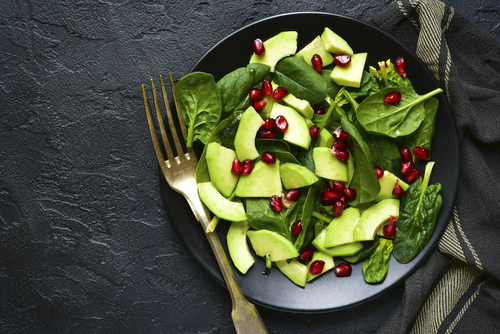Coping with Holiday Stress | Julie Daniluk's guide to nutrition for stress reduction

When I speak with clients about their concerns, one of the first questions I ask is, “what stresses you out?” It's amazing how many times I get one of these 3 primary answers:
- Money
- Job
- Caring for children, elderly parents or an ill loved one
Are you one of the many who've ignored the effects of stress on your own health until symptoms have begun to occur?
Stress is a contributing factor in many illnesses – from headaches to heart disease, immune deficiencies, anxiety disorders and digestive problems.
Eating refined sugars and flours inhibit the production of your brain’s natural pleasure chemicals. Healthy whole foods are packed with the nutrition your brain needs to produce a positive, calm and more alert state that leads to a happier and less stressful life.
I run a very demanding business that involves long hours and a large energy output. This type of lifestyle pushes my adrenals to produce stress hormones. Before I became a Nutritionist, I would have devoured a pint of ice cream and a row of cookies to cope; now I have an amazing arsenal of relaxing and healing foods to help me to get through any challenge.
5 foods that fight stress

1. Add CAROB for chocolate flavour and extra minerals.
Carob contains high amounts of essential minerals, like calcium and magnesium, both of which are required for the proper contraction and subsequent relaxation of muscles. Magnesium also supports adrenal function and inhibits the release of adrenaline, the hormone that contributes to the feelings associated with stress.1

2. Boost your Vitamin B6 with AVOCADO.
Vitamin B6 is necessary for the creation of steroid hormones, including those that are released during periods of stress.2 States of excess stress could cause a depletion of Vitamin B6 stores, which could cause other hormonal imbalances and additional internal stressors.

3. Crunch on raw, organic RED BELL PEPPERS to boost immunity and fight stress.
Red bell peppers are packed with Vitamin C, which can reduce cortisol (stress hormone) levels in your blood. The benefit of Vitamin C is two-fold as it also improves your ability to fight infections, which you tend to be more susceptible to during periods of high stress.3 Conventionally grown peppers are sprayed with high amounts of pesticides, so it's very important to buy organic.

4. Decrease anxiety by increasing your FISH intake.
EPA (eicosapentaenoic acid) and DHA (docosahexaenoic acid) are two major components of the omega fatsfound in fish oils.4 Including adequate amounts of these fats in the diet has been shown to decrease episodes of anxiety and even anger in adults. Just remember to choose sardines, anchovies and other fish that are low on the food chain to avoid pollutants like mercury.

5. Eat TURKEY to take the edge off.
Tryptophan is the amino acid often blamed for the “Thanksgiving coma,” though it’s also present in high levels in beef, poultry, salmon and shrimp.5 When tryptophan is transported to your brain, it has the ability to convert into serotonin to reduce anxiety and stress, as well as into melatonin, which aids in stress-related insomnia.
References
- D. Jee, D. Lee S. Yun, C. Lee: “Magnesium sulphate attenuates arterial pressure increase during laparoscopic cholecystectomy.” BJA: British Journal of Anaesthesia, Volume 103, Issue 4, 1 October 2009
- J. Dennis Mahuren, Paula L. Dubeski, Nigel J. Cook*, Allan L. Schaefer, and Stephen P. Coburn: “Adrenocorticotropic Hormone Increases Hydrolysis of B-6 Vitamers in Swine Adrenal Glands.” J. Nutr. October 1, 1999 vol. 129 no. 10 1905-1908
- Gregory S. Kelly, ND: “Nutritional and Botanical Interventions to Assist with the Adaptation to Stress.” Alternative Medicine Review ◆ Volume 4, Number 4, 1999
- Laure Buydens-Branchey, Marc Branchey and Joseph R. Hibbeln: “Associations between increases in Plasma N-3 Polyunsaturated Fatty Acids following supplementation and decreases in anger and anxiety in substance abusers.” Prog Neuropsychopharmacol Biol Psychiatry. 2008 Feb 15; 32(2): 568–575.
- Russo, Sascha MD; Kema, Ido P. PhD; Fokkema, Rebecca M. MSc; Boon, Jim C. MD; Willemse, Pax H. B. MD, PhD; de Vries, Elisabeth G. E. MD, PhD; Den Boer, Johannes A. MD, PhD; Korf, Jakob PhD: “Tryptophan as a Link between Psychopathology and Somatic States.” Psychosomatic Medicine: July 2003 - Volume 65 - Issue 4 - p 665–671 doi: 10.1097/01.PSY.0000078188.74020.CC

